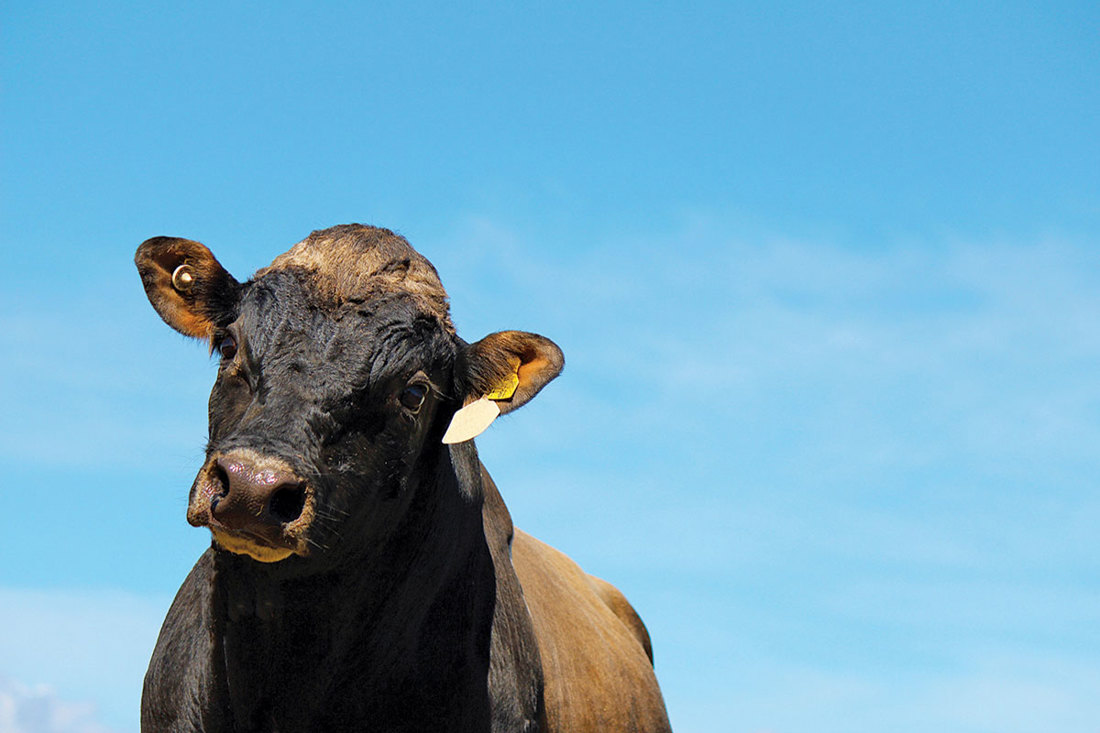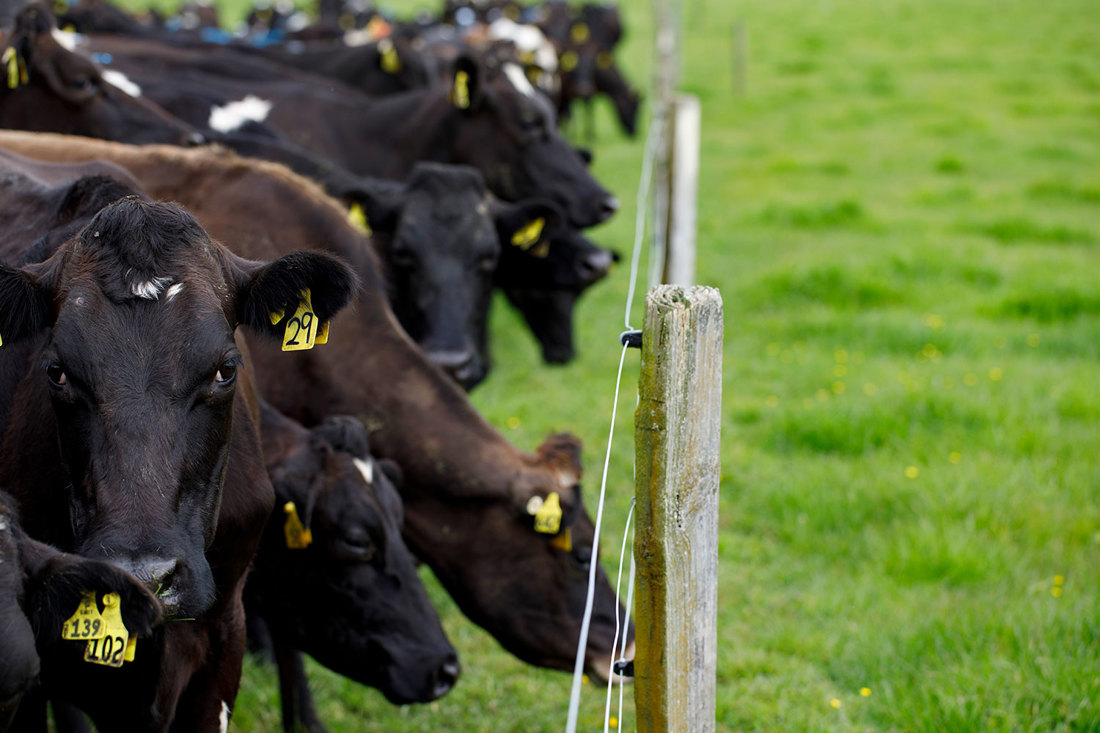Animal database DIGAD
9 min read
The Dairy Industry Good Animal Database (DIGAD) holds pedigree and performance information for every recorded dairy cow in New Zealand. It is led by NZAEL, an industry good organisation and wholly owned subsidiary of DairyNZ, which uses the data to keep improving the sector’s efficiency and productivity. The DIGAD is involved in building a database, animal evaluation models, and developing systems for certified herd testing providers to submit data. Access to the data held in DIGAD can be requested through DairyNZ, and data standards are in place to maintain the quality of data.
Achieving ongoing genetic gain has been a cornerstone of the New Zealand dairy farmers’ competitiveness. The Dairy Industry Good Animal Database (DIGAD) was established in 2014 and is a comprehensive database managed by NZAEL, a wholly owned subsidiary of DairyNZ. It serves as a central repository for individual animal performance data collected from participating dairy farms across the country.
This database enables dairy farmers, researchers, and industry stakeholders to access valuable information on traits such as milk production, fertility, health, and conformation. By analysing this data, farmers can make informed breeding decisions to improve the overall productivity, efficiency, and sustainability of their dairy herds.
Core data is available through DairyNZ for industry good purposes, and access is granted through the core data access panel.
DIGAD contains both core and non-core data, and there are separate regulations or conditions controlling the use and distribution of each data set. The primary use of core and non-core data is to calculate the Breeding Worth of animals through the animal evaluation function.
The core data is made up of 46 fields of raw data prescribed in the Dairy Industry Amendment Regulations 2014 (Herd Testing and New Zealand Dairy Core Database). The data is generated through herd recording (calvings/matings etc.) and herd measurement (herd testing, herd weighing). Data is initially collected by herd record providers, who then pass it on to the DIGAD. There are regulations restricting the use of core data.
Non-core data is also supplied by herd record providers. It includes information about body condition score and traits other than production (such as udder support and cow temperament) which are collected and assessed by participating Breed Society inspectors. The distribution of this data is governed by an agreement with the supplier and there are conditions around data use. Anyone requiring access to this data should discuss their requirements with the DIGAD Administrator. Further details set out in the regulations 2014 can be found here.
Access to the data held in DIGAD can be requested through DairyNZ, and data standards are in place to maintain the quality of data. Read more on how to supply or access data from DIGAD below.
The governance process for accessing data ensures industry good data is protected from misuse and inappropriate distribution. All requests and data provisioning (including the intended use) will be tracked and monitored.
Requests and subsequent data access is confidential. Details of the applicant, the intended use of data and the scope of data provided will not be disclosed outside DairyNZ or the Access Panel.
The Access Panel comprises three members appointed by the Ministry for Primary Industries. They are responsible for granting applicants access to information stored in the core database.
To make an enquiry regarding data access, please complete the form. Read more about this process and next steps below.

To make an enquiry regarding data access, please enter your details into the DIGAD enquiry form.
An estimate for providing the required data will be calculated, including fees and extract costs.
The access panel will review the data requirements, applicant, and the intended use of the requested data. If approved, the access panel may create specific terms and conditions the applicant must agree to, before receiving the data.
DairyNZ will generate an invoice for the cost of data provision and this invoice must be paid before the data is extracted.
Pricing
All data requests are reviewed by the Access Panel, and the success of the application depends on the intended use of the data. Data will be supplied to applicants if it is determined to be for the benefit of the dairy sector. The table below summarises the costs associated with data requests:
Confidentiality
DairyNZ is the custodian of the core database governed by the Dairy Industry (Herd Testing and New Zealand Dairy Core Database) Regulations 2001.
Regulation 25 (Confidentiality) requires DairyNZ to keep confidential:
Requests and subsequent data access is confidential. Details of the applicant, the intended use of data and the scope of data provided will not be disclosed outside DairyNZ or the access panel.

DIGAD is a database that holds data for every recorded dairy cow in New Zealand. Information in DIGAD is supplied by herd record providers and is used by NZAEL to operate Animal Evaluation models. Data supplied to DIGAD helps maintain high-quality information and assists in breeding decisions. This leads to better herd management, improved productivity and profitability.
You can supply data through herd testing via certified herd testing providers. The herd testing company will then directly submit data on your behalf. This data is available to farmers through the NZAEL tools for benchmarking and to determine national breeding decision that influence breeding worth.
A set of standards that define the requirements, processes and procedures required for accurately recording data and submitting to DIGAD for use in animal evaluation for animals enrolled in DIGAD.
Herd testing is a valuable way to provide data to DIGAD and is provided through certified herd testers. There are currently two certified herd testers in NZ - LIC and CRV Ambreed. To find out how herd testing can be carried out in your herd, please contact your preferred certified herd tester:
| Name | Contact Details | Certified by | Date certified | Date of expiry |
| CRV AmBreed New Zealand Ltd |
Ph: 0800 262 733 |
Telarc SAI Ltd | 20 April 2023 | 9 May 2026 |
| Livestock Improvement Corporation |
Ph: 0800 264 632 |
Telarc SAI Ltd | 26 October 2022 | 4 November 2025 |
To become a Certified Herd Tester, contact the certification body listed below:
| Name | Contact details | Date approved | Date of expiry |
| Telarc SAI Ltd |
Ph: 0800 004 004 |
3 June 2020 | 31 July 2026 |
The Herd Test standard was released in 2001 and the latest update was published in September 2024. This standard provides information on procedures and practises that shall be adopted by certified herd testers and their farmer customers, as well as guidance on procedures and practises that should be followed to meet industry goals resulting from herd testing.
Key points covered by NZS8100:2024 are:
NZS 8100:2024 supersedes NZS 8100:2015 and recognises that using a high-quality data subset is better than using a large volume of data that includes inaccurate metadata.
A full version of the Herd Test Standard may be purchased online from the Standards New Zealand website by typing NZS8100:2024 in the search.

In 2008, DairyNZ established a committee headed by Professor Robert Anderson, to undertake a comprehensive review of the New Zealand dairy sector’s animal database.
The Committee sought and considered submissions from a range of organisations and individuals, and released a range of recommendations in a report titled the New Zealand Dairy Herd Improvement Database Review. Two recommendations in this report were to transfer the Core Database and the Animal Evaluation function from LIC to an industry good body.
In August 2013, DairyNZ and LIC signed a formal agreement setting out the terms of the transfer of the Core Database and the licensing of the Animal Evaluation Intellectual Property to enable DairyNZ to operate and develop the New Zealand Animal Evaluation system.
Findings of 2024 Audit of New Zealand Dairy Core Database Access Panel (NZDCDAP). Under the Dairy Industry (Herd Testing and New Zealand Dairy Core Database) Regulations 2001 the Access Panel must appoint an auditor to audit the role of Manager of the core database’s compliance with the Standard.
The agreed terms for the Dairy Industry Good Animal Database around intellectual property and agreed operations between LIC and DairyNZ. Released September 2013.
The challenges and opportunities facing the New Zealand dairy sector. The paper discusses strategies for optimising dairy herd management, including maintaining the National Breeding Objective to improve productivity and resilience, as well as implementing best practices for animal health and welfare. Released December 2012.
The findings from the review of DIGAD commissioned by DairyNZ - A summary.
Now’s the perfect time to check in, plan, and set up for a strong season. We’ve pulled together smart tips and tools to help you stay ahead all winter long.
Whether you prefer to read, listen, or download handy guides, we’ve got you covered with trusted tools to support your journey every step of the way.